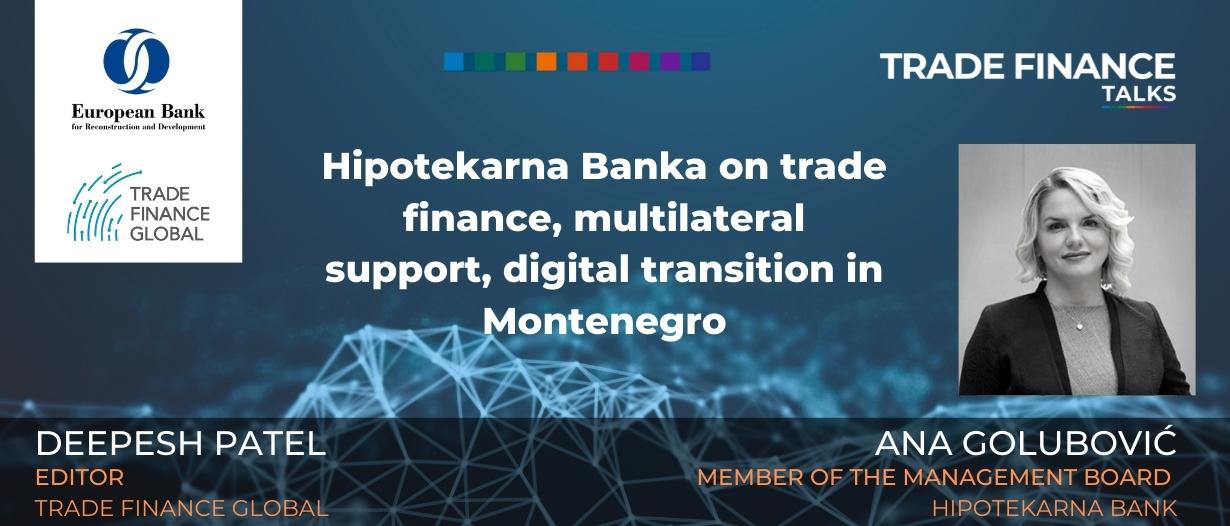Listen to this podcast on Spotify, Apple Podcasts, Podbean, Podtail, ListenNotes, TuneIn
Trade Finance Global (TFG) discusses avenues to promote more accessible trade finance tools in South-East Europe.
The European Bank for Reconstruction and Development’s (EBRD) Trade Facilitation Program (TFP) forum in Istanbul heavily featured discourse around Southeastern European countries, namely promoting trade into the region.
To learn more about the trade ecosystem in the Balkan peninsula, TFG joined Ana Golubovic, a management board member at Hipotekarna Banka in Montenegro, Europe.
Montenegro is located on the Adriatic Sea, sharing its borders with Croatia, Serbia, Bosnia and Herzegovina, and Albania.

Trade finance landscape in Montenegro
Montenegro is a small country with around 600,000 inhabitants and is highly dependent on imports.
According to data from the World Bank, the value of Montenegro’s imports sit at around 65% of the nation’s total GDP, more than double the global average of 27.7%.
This reliance on imports means that many of Montenegro’s most prominent companies are also the largest importers.
This dynamic creates a strong need for these companies to have access to trade finance products like guarantees and letters of credit to operate and provide value for the country continually.
“In the Montenegran market, the most active products are guarantees, especially insurance guarantees for delayed payment,” Golubovic said.
“The unstable situation on the global market is likely provoking many firms to request this type of guarantee.”

The role of EBRD’s TFP
The EBRD is a crucial ally for a private bank like Hipotekarna Banka that does not benefit from the support mechanisms provided by being part of a larger banking group.
“We have been in cooperation with the EBRD for more than ten years now and a part of the trade facilitation program [TFP] for seven,” Golubovic said.
“And we are delighted by the level of support we have received.”
EBRD backing helps bolster Hipotekarna Banka’s credibility in addition to establishing them as a partner that can provide an array of services that are important to businesses.
The EBRD also provides invaluable support in the form of knowledge sharing and education, lending the bank confidence when supporting client needs.
Digital priorities for Montenegro since the pandemic
Digitalisation has been front-of-mind for many stakeholders in the trade and trade finance space for several years but was made more prevalent by the onset of the COVID-19 pandemic.
“The pandemic will help us to speed up digitalisation in all segments,” Golubovic said.
“This will be true for the domains and products of the banks, but also just for all segments of life in general.”
Looking to the future, digitalisation will undoubtedly be a key driver of efficiency and trade finance business in Montenegro, especially given the rapid growth of guarantees and the letter of credit business in Montenegro.

































